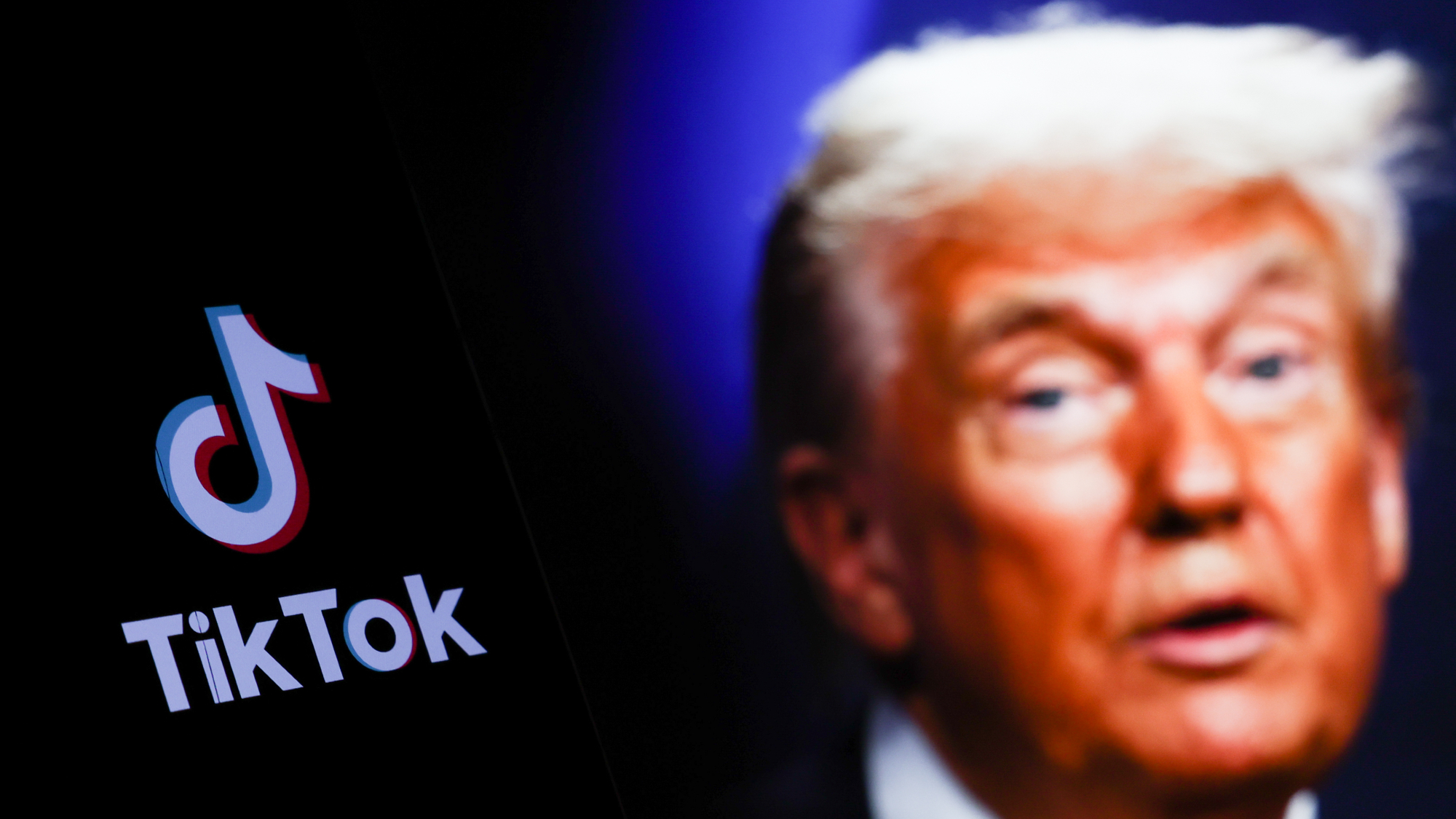Tik-tots: the rules for children on social media
Third of parents say they would allow their child to use popular platforms ‘despite the age requirement’

A free daily email with the biggest news stories of the day – and the best features from TheWeek.com
You are now subscribed
Your newsletter sign-up was successful
Young heavy users of social media are more likely to experience low life satisfaction and unhappiness with their appearance, school and family than their less online-dependent peers.
A report conducted by The Children’s Society last year found that 7% of 10- to 15-year-olds in the UK – or roughly 306,000 young people – feel unhappy with their lives, with social media thought to be a contributing factor. “Social media gives people a platform to be mean,” 16-year-old Yara told the charity. “They can be so cruel.”
But despite the correlation between social media and mental ill health, more children than ever are signing up to create their own online accounts. The communications regulator Ofcom’s Children and parents: media use and attitudes report for 2020/21 found that 87% of 12- to 15-year-olds use social media sites or apps and 42% of those aged between 5 and 12.
The Week
Escape your echo chamber. Get the facts behind the news, plus analysis from multiple perspectives.

Sign up for The Week's Free Newsletters
From our morning news briefing to a weekly Good News Newsletter, get the best of The Week delivered directly to your inbox.
From our morning news briefing to a weekly Good News Newsletter, get the best of The Week delivered directly to your inbox.
What are the age limits?
The fact that almost half of 5- to 12-year-olds are using social media sites or apps is significant because the minimum age requirement for most social media platforms is 13.
Instagram, Twitter, TikTok, Snapchat and Facebook all require users to be at least 13 before creating an account with them. WhatsApp users in the European Economic Area must be at least 16 to register for an account. And YouTube states that you must be at least 13 to use its service, however “children of all ages may use the service and YouTube Kids (where available) if enabled by a parent or legal guardian”.
When Ofcom’s researchers asked parents of children aged 5 to 15 whether they were aware of these minimum age requirements, almost 90% said they were. But less than four in ten of them could accurately state what the age requirement actually was.
Three in ten parents of children under 13 surveyed by Ofcom “said they would allow their child to use social media despite the age requirement”.
A free daily email with the biggest news stories of the day – and the best features from TheWeek.com
Are these age limits effective?
Even though TikTok enforces a minimum age requirement, another report by Ofcom, which was published earlier this year, found that about 16% of three- and four-year-olds have been viewing content on the video-sharing platform, The Guardian reported. It described this trend as the “rise of the TikTots” – in other words, “children defying age restrictions to use social platforms”.
One 12-year-old female respondent told Ofcom that “for TikTok and Snapchat I think I put in a fake birthday because I was allowed to have it”.
In response to Ofcom’s 2022 report, a TikTok spokesperson said: “TikTok is strictly a 13-plus platform and we have processes in place to enforce our minimum age requirements, both at the point of sign up and through the continuous proactive removal of suspected underage accounts from the platform”.
The report also exposed the problem of “Finstas” – fake Instagram accounts used by young people to hide aspects of their online lives from their parents. Ofcom’s researchers believe that as many as two-thirds of eight- to 11-year-olds have multiple Instagram accounts, while almost 50% have an account just for their family to see.
What are platforms doing to protect children?
Last year, TikTok was praised by the NSPCC for limiting the direct messaging abilities of accounts belonging to users who are aged 16 and 17, and proactively asking users under 16 to decide whether they want their videos to be visible to their followers, their friends or just themselves.
The platform also announced that it would no longer send push notifications after 9pm to users aged between 13 and 15, and after 10pm for 16- and 17-year-olds. “We want to help our younger teens in particular develop positive digital habits early on,” said a TikTok spokesperson.
Also in 2021, Meta (then known as Facebook) announced what The Guardian described as “sweeping changes” to Instagram, which included giving under 16-year-olds private accounts by default, “ensuring that kids only share content publicly if they actively dive into settings and change their privacy preferences accordingly”.
YouTube then announced a “surprisingly similar” set of changes which updated the default privacy settings for users under 18.
-
 How the FCC’s ‘equal time’ rule works
How the FCC’s ‘equal time’ rule worksIn the Spotlight The law is at the heart of the Colbert-CBS conflict
-
 What is the endgame in the DHS shutdown?
What is the endgame in the DHS shutdown?Today’s Big Question Democrats want to rein in ICE’s immigration crackdown
-
 ‘Poor time management isn’t just an inconvenience’
‘Poor time management isn’t just an inconvenience’Instant Opinion Opinion, comment and editorials of the day
-
 Moltbook: The AI-only social network
Moltbook: The AI-only social networkFeature Bots interact on Moltbook like humans use Reddit
-
 Are Big Tech firms the new tobacco companies?
Are Big Tech firms the new tobacco companies?Today’s Big Question A trial will determine whether Meta and YouTube designed addictive products
-
 TikTok finalizes deal creating US version
TikTok finalizes deal creating US versionSpeed Read The deal comes after tense back-and-forth negotiations
-
 Is social media over?
Is social media over?Today’s Big Question We may look back on 2025 as the moment social media jumped the shark
-
 Australia’s teen social media ban takes effect
Australia’s teen social media ban takes effectSpeed Read Kids under age 16 are now barred from platforms including YouTube, TikTok, Instagram, Facebook, Snapchat and Reddit
-
 X update unveils foreign MAGA boosters
X update unveils foreign MAGA boostersSpeed Read The accounts were located in Russia and Nigeria, among other countries
-
 Sora 2 and the fear of an AI video future
Sora 2 and the fear of an AI video futureIn the Spotlight Cutting-edge video-creation app shares ‘hyperrealistic’ AI content for free
-
 Trump allies reportedly poised to buy TikTok
Trump allies reportedly poised to buy TikTokSpeed Read Under the deal, U.S. companies would own about 80% of the company